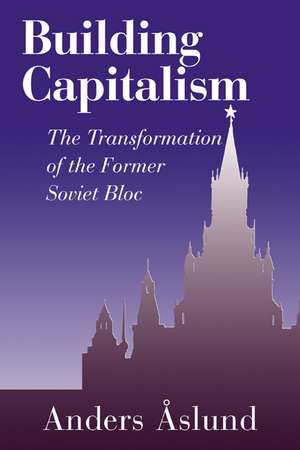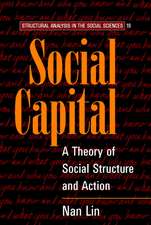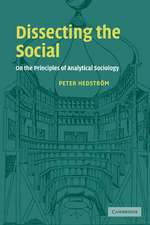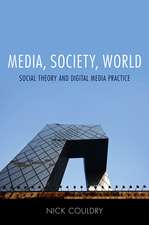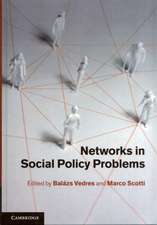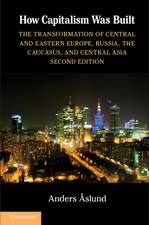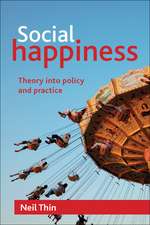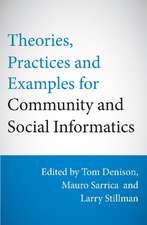Building Capitalism: The Transformation of the Former Soviet Bloc
Autor Anders Aslunden Limba Engleză Paperback – 2 dec 2001
| Toate formatele și edițiile | Preț | Express |
|---|---|---|
| Paperback (1) | 453.88 lei 6-8 săpt. | |
| Cambridge University Press – 2 dec 2001 | 453.88 lei 6-8 săpt. | |
| Hardback (1) | 899.33 lei 6-8 săpt. | |
| Cambridge University Press – 9 dec 2001 | 899.33 lei 6-8 săpt. |
Preț: 453.88 lei
Nou
Puncte Express: 681
Preț estimativ în valută:
86.85€ • 90.92$ • 71.86£
86.85€ • 90.92$ • 71.86£
Carte tipărită la comandă
Livrare economică 05-19 aprilie
Preluare comenzi: 021 569.72.76
Specificații
ISBN-13: 9780521805254
ISBN-10: 0521805252
Pagini: 532
Ilustrații: 13 b/w illus. 62 tables
Dimensiuni: 152 x 229 x 27 mm
Greutate: 0.67 kg
Editura: Cambridge University Press
Colecția Cambridge University Press
Locul publicării:New York, United States
ISBN-10: 0521805252
Pagini: 532
Ilustrații: 13 b/w illus. 62 tables
Dimensiuni: 152 x 229 x 27 mm
Greutate: 0.67 kg
Editura: Cambridge University Press
Colecția Cambridge University Press
Locul publicării:New York, United States
Cuprins
List of tables and charts; Acknowledgements; List of abbreviations; Introduction; 1. What communism actually was; 2. The decline and fall of socialism; 3. Strategic policy choices; 4. Changes in output and their causes; 5. Liberalization; 6. Financial stabilization; 7. Privatization; 8. Social developments and policy; 9. State and politics in the transformation; 10. Role of the outside world; 11. Conclusions; Bibliography; Index.
Recenzii
'Building Capitalism has all the right ingredients: it is on a critically important issue; it is based on an extraordinarily detailed knowledge of economic and political history, pre- and post- the break-up of the former Soviet Union; and it displays a full acquaintance with the literature, Anders Aslund's naturally exuberant style, and a clear point of view. Whether you agree or disagree with the argument, you should not be indifferent to this book. And by the end, you should fundamentally agree.' Stanley Fischer, International Monetary Fund
'He persuasively develops a strong thesis that runs counter to the conventionally accepted view that reform efforts were too rapid and too drastic. … A fact-filled and challenging analysis for anyone interested in one of the great transformations of the past half-century.' Foreign Affairs
'… perhaps the most competent evaluation of the economic development of this vast region for the past decade.' Journal of Peace Research
'… the scope of his text, the breadth and depth of literature cited and the acuity of analysis he brings to bear make Building capitalism an important addition to the literature. And the arguments he deploys will be extremely hard for critics of the Washington Consensus to refute.' International Affairs
'The strength of his volume remains in its comparative analysis of economic policies, which provides an insight to liberal economic thinking that has been so important in Central and Eastern Europe's transition.' Balkan Academic News
'Building Capitalism is a tour de force that will come to form part of the corpus of essential background reading for those interested in this subject and its myriad ramifications …' The Journal of Energy Literature
'He persuasively develops a strong thesis that runs counter to the conventionally accepted view that reform efforts were too rapid and too drastic. … A fact-filled and challenging analysis for anyone interested in one of the great transformations of the past half-century.' Foreign Affairs
'… perhaps the most competent evaluation of the economic development of this vast region for the past decade.' Journal of Peace Research
'… the scope of his text, the breadth and depth of literature cited and the acuity of analysis he brings to bear make Building capitalism an important addition to the literature. And the arguments he deploys will be extremely hard for critics of the Washington Consensus to refute.' International Affairs
'The strength of his volume remains in its comparative analysis of economic policies, which provides an insight to liberal economic thinking that has been so important in Central and Eastern Europe's transition.' Balkan Academic News
'Building Capitalism is a tour de force that will come to form part of the corpus of essential background reading for those interested in this subject and its myriad ramifications …' The Journal of Energy Literature
Descriere
A comprehensive economic analysis of the Soviet bloc countries ten years after Communism.
